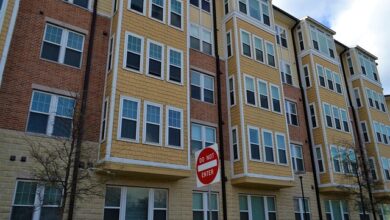Is It Cheaper to Live in a Dutch City or the Countryside?

The cost of living in the Netherlands varies significantly depending on whether you choose to live in a bustling city or a quieter rural area. Both options have their pros and cons, and the decision often comes down to your lifestyle preferences, budget, and priorities. Here’s a detailed comparison of living costs in Dutch cities versus the countryside to help you decide which suits you best.
1. Housing Costs: The Biggest Factor
Cities
- Higher Rent Prices: Cities like Amsterdam, Rotterdam, Utrecht, and The Hague have some of the highest rental prices in the country. A one-bedroom apartment in the city center can cost anywhere from €1,500 to €2,500 per month.
- Limited Space: Urban housing tends to be smaller, with many apartments being compact studios or shared spaces.
- Competition: High demand for housing in cities means fewer affordable options and longer waiting lists for social housing.
Countryside
- Lower Rent Prices: Renting a house or apartment in rural areas is significantly cheaper. For example, a similar one-bedroom apartment might cost €700–€1,200 per month outside major cities.
- More Space: Countryside homes often come with larger living areas, gardens, or even detached houses at reasonable prices.
- Less Competition: Finding affordable housing is easier in rural areas due to lower population density.
Verdict: The countryside is much cheaper for housing, especially if you value space and affordability.
2. Transportation Costs
Cities
- Public Transport: Cities have excellent public transportation networks (trams, buses, metros), but monthly passes can still add up (around €100–€150 per month).
- Biking: Cycling is a popular and cost-effective way to get around, as bike-friendly infrastructure is abundant.
- No Need for a Car: Many urban residents don’t own cars because everything is within walking or biking distance.
Countryside
- Car Dependency: Public transport options are limited in rural areas, making car ownership almost essential. This includes fuel, insurance, maintenance, and parking costs.
- Longer Commutes: If you work in a nearby city, commuting expenses (train tickets or fuel) can increase your overall costs.
- Cheaper Parking: Unlike cities, where parking fees are high, rural areas typically offer free or low-cost parking.
Verdict: Cities are cheaper if you rely on public transport or bikes, while the countryside requires higher transportation costs due to car dependency.
3. Groceries and Daily Expenses
Cities
- Higher Grocery Prices: Supermarkets in urban areas tend to charge slightly more due to higher operational costs.
- Convenience Stores: Convenience stores and specialty shops are common but pricier than larger supermarkets.
- Dining Out: Eating out in cities is generally more expensive, though there are budget-friendly options like food trucks and student cafeterias.
Countryside
- Lower Grocery Prices: Rural supermarkets often have better deals, and local farmers’ markets provide fresh produce at competitive rates.
- Fewer Dining Options: Restaurants and cafes are less abundant, but when available, they’re usually more affordable than in cities.
- DIY Lifestyle: Growing your own vegetables or raising chickens is feasible in rural areas, potentially reducing food costs.
Verdict: The countryside offers cheaper groceries and daily essentials, especially if you embrace a self-sufficient lifestyle.
4. Utilities and Services
Cities
- Higher Utility Bills: Urban apartments may have higher energy bills due to older buildings with less insulation or shared heating systems.
- Internet and TV: High-speed internet is widely available but can be slightly more expensive in densely populated areas.
Countryside
- Lower Utility Bills: Houses in rural areas are often newer or better insulated, leading to reduced heating and electricity costs.
- Slower Internet: While most rural areas now have decent internet, speeds may not match those in cities, and installation costs could be higher.
Verdict: Utilities are generally cheaper in the countryside, but connectivity issues might offset some savings.
5. Entertainment and Leisure
Cities
- Abundant Options: Cities offer endless entertainment choices, including museums, theaters, concerts, nightlife, and festivals.
- Higher Costs: Tickets, club entry fees, and drinks at bars/clubs can quickly add up.
- Free Activities: Many cities host free events, outdoor markets, and cultural activities year-round.
Countryside
- Fewer Options: Entertainment venues are limited, but nature-based activities like hiking, cycling, and boating are accessible and often free.
- Community Events: Small towns frequently organize affordable or free local events, such as fairs and markets.
- DIY Fun: Living in the countryside encourages hobbies like gardening, DIY projects, or stargazing.
Verdict: Cities provide more diverse entertainment but at a higher cost, while the countryside offers affordable, nature-focused leisure activities.
6. Healthcare and Education
Cities
- Better Access: Major cities have top-tier hospitals, clinics, and specialized healthcare providers.
- Schools and Universities: Urban areas host prestigious schools and universities, offering broader educational opportunities.
- Childcare Costs: Daycare and after-school programs are more expensive in cities.
Countryside
- Limited Facilities: Smaller towns may lack specialized medical services, requiring trips to nearby cities for certain treatments.
- Exception: Some rural areas compensate with lower healthcare premiums through collective schemes.
- Affordable Childcare: Childcare costs are generally lower outside major cities.
Verdict: Cities win for convenience and access to premium services, but the countryside can save money on childcare and basic healthcare.
7. Overall Cost of Living Comparison
| Category | City | Countryside |
|---|---|---|
| Housing | Expensive | Affordable |
| Transportation | Public transport is cheap | Car ownership adds costs |
| Groceries | Slightly pricier | Cheaper |
| Utilities | Higher | Lower |
| Entertainment | Diverse but costly | Limited but affordable |
| **Healthcare/Education | Convenient and comprehensive | Basic but affordable |
Who Should Choose a City?
- If you prioritize convenience, career opportunities, and vibrant social life.
- If you rely on public transport or prefer biking over driving.
- If you’re willing to pay a premium for proximity to amenities and cultural attractions.
Who Should Choose the Countryside?
- If you value peace, quiet, and a slower pace of life.
- If you want more space for your money and enjoy outdoor activities.
- If you’re comfortable with owning a car and traveling for specialized services.


